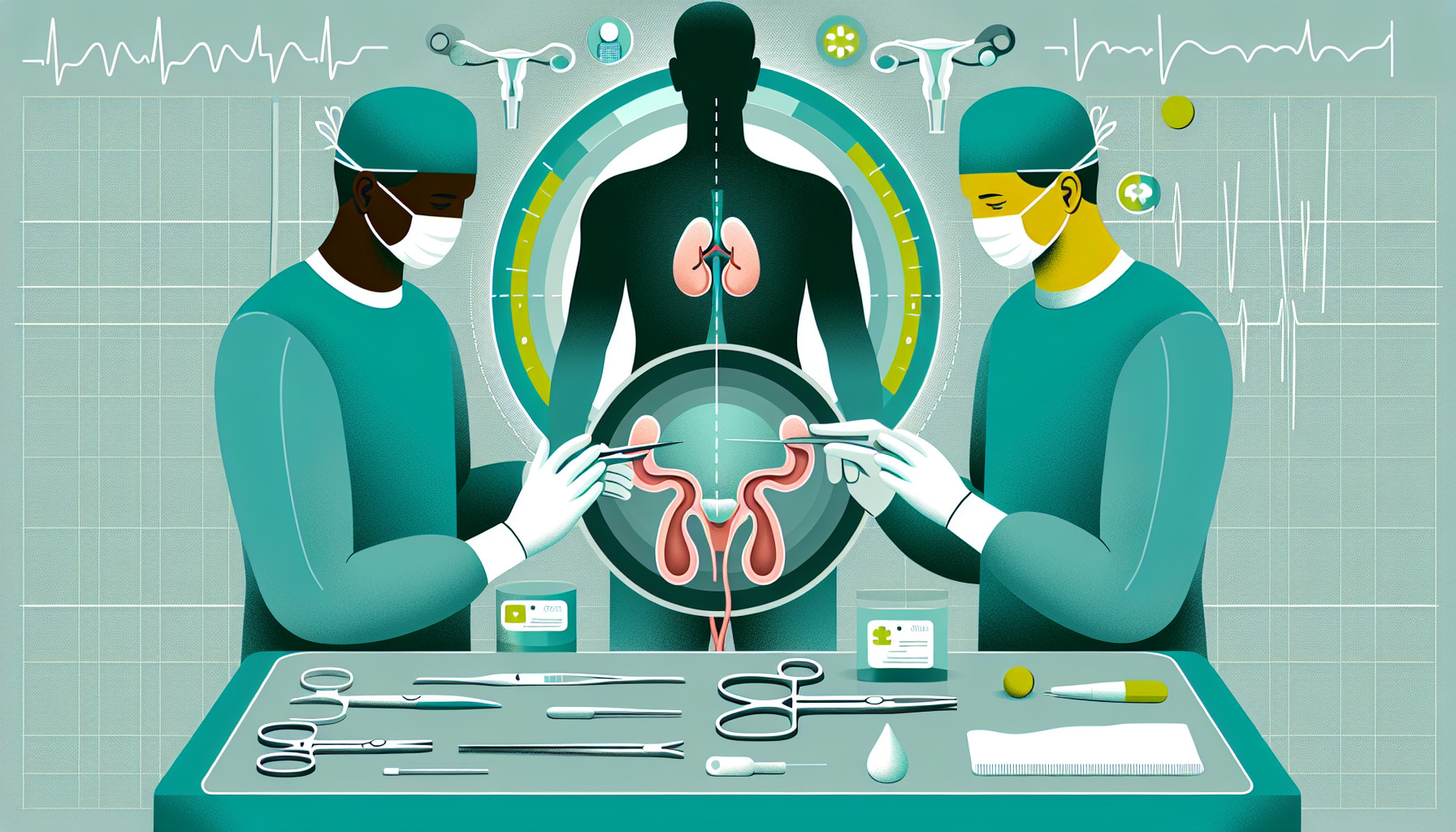Our Summary
This paper reviews current practices in surgery safety, specifically for a procedure called radical cystectomy (bladder removal). It argues that successful surgery should be viewed as a continuous process from the decision to operate to the patient’s full recovery, rather than just the operation itself. It highlights the importance of preparing the patient for surgery, which can lead to better outcomes by boosting the body’s resilience.
The paper emphasizes the importance of a team approach, involving all relevant medical professionals from the start, rather than relying on one specialist. This is particularly important in the context of an aging population and the need to control healthcare costs. The authors also present a new approach to improve the care for patients undergoing radical cystectomy, based on their experience at a high-volume medical center.
The conclusion of the paper is that with the implementation of several key steps, such as pre-surgery preparation, safety checks, improved monitoring during surgery, and enhanced recovery concepts, even complex surgeries like radical cystectomy can be performed more safely. The authors stress the need to focus on the patient’s journey through the whole surgical process, not just the operation itself.
FAQs
- What is the importance of a team approach in the process of a radical cystectomy?
- How can the process of a radical cystectomy be made safer according to the article?
- Why is pre-surgery preparation essential for a successful radical cystectomy?
Doctor’s Tip
A helpful tip a doctor might tell a patient about cystectomy is to make sure to follow all pre-operative instructions provided by the medical team. This may include fasting before surgery, stopping certain medications, and showering with a special antibacterial soap. Following these instructions can help reduce the risk of complications during and after the surgery.
Suitable For
Patients who are typically recommended for cystectomy are those with invasive bladder cancer that has not responded to other treatments, such as chemotherapy or radiation therapy. Other reasons for recommending cystectomy may include:
- Muscle-invasive bladder cancer
- Recurrent or persistent high-grade non-invasive bladder cancer
- Infections or other conditions that cannot be treated with other methods
- Interstitial cystitis
- Bladder dysfunction or urinary incontinence that is not responsive to other treatments
It is important for patients to discuss their individual situation with their healthcare provider to determine if cystectomy is the best treatment option for them.
Timeline
Before cystectomy:
- Diagnosis of bladder cancer and discussion of treatment options with the healthcare team.
- Pre-operative preparation, which may include tests, consultations with various specialists, and lifestyle changes.
- Decision to undergo cystectomy and informed consent process.
- Surgical planning and scheduling of the procedure.
After cystectomy:
- Immediate post-operative recovery in the hospital, which may involve pain management, monitoring for complications, and starting physical therapy.
- Transition to home care or a rehabilitation facility, depending on the patient’s needs.
- Follow-up appointments with the healthcare team to monitor healing, manage any complications, and discuss long-term care.
- Rehabilitation and recovery, which may involve physical therapy, counseling, and support groups to adapt to life without a bladder.
What to Ask Your Doctor
Some questions a patient should ask their doctor about cystectomy may include:
- What are the potential risks and complications associated with a cystectomy?
- What is the expected recovery time after a cystectomy?
- What are the alternative treatment options available for my condition?
- How many cystectomies have you performed and what is your success rate?
- What type of anesthesia will be used during the surgery?
- Will I need any additional treatments or therapies after the cystectomy?
- How will my quality of life be affected after the surgery?
- What can I do to prepare for the surgery and optimize my recovery?
- What kind of follow-up care will be needed after the cystectomy?
- Are there any long-term effects or complications I should be aware of?
Reference
Authors: Engel D, Furrer MA, Wuethrich PY, Löffel LM. Journal: World J Urol. 2020 Jun;38(6):1359-1368. doi: 10.1007/s00345-019-02839-y. Epub 2019 Jun 14. PMID: 31201522
